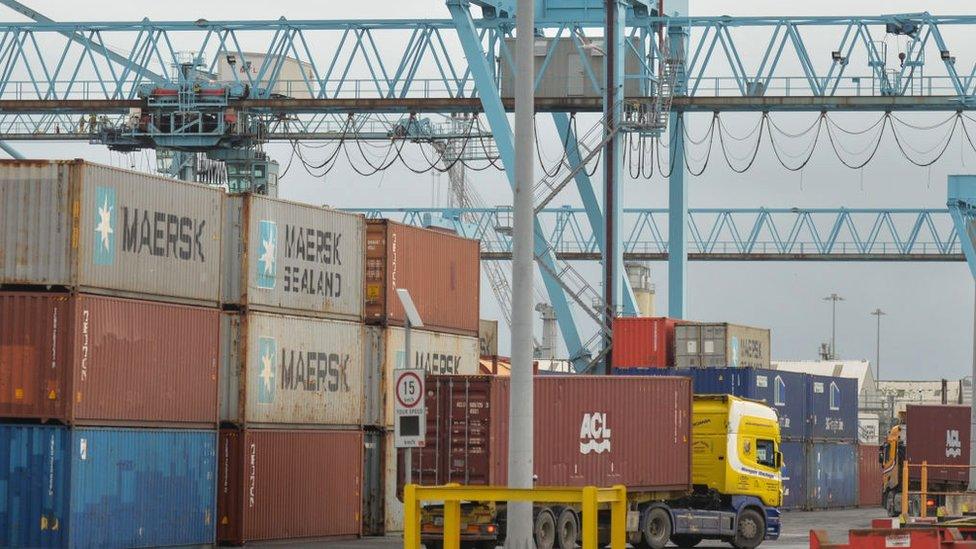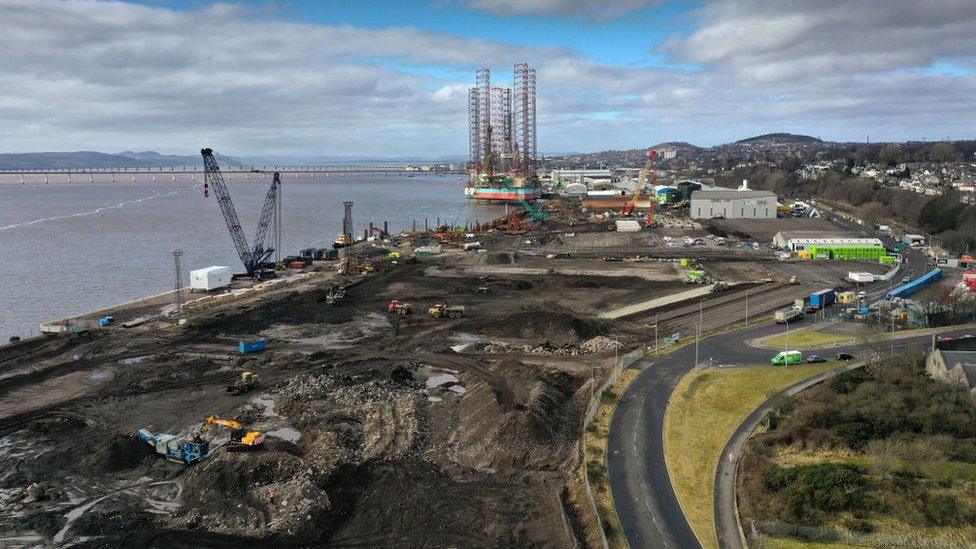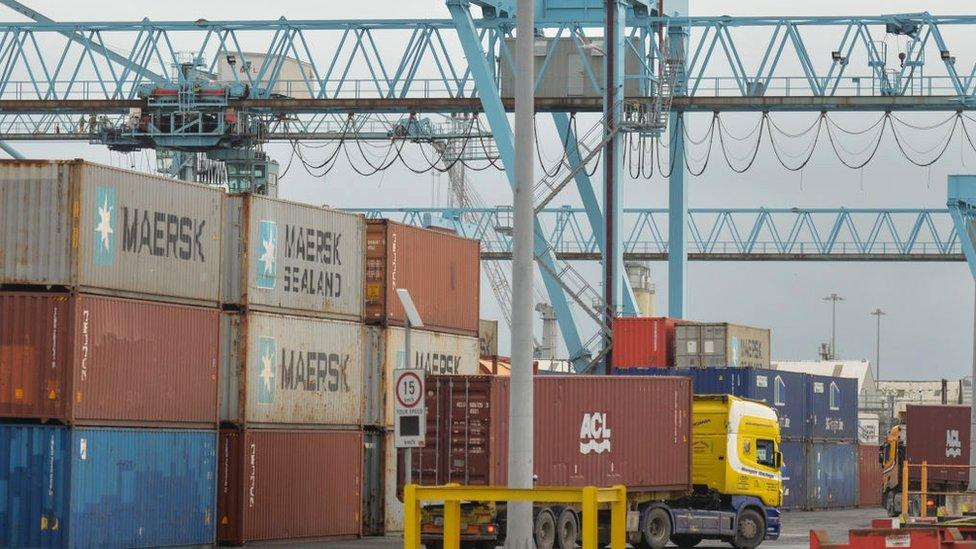Green commitment demanded in Scottish freeport talks
- Published

Freeports allow firms to import goods and then re-export them outside normal tax and customs rules
The Scottish government has written to the UK government to seek co-operation to deliver green ports in Scotland.
Ministers at Holyrood want to adapt UK proposals to establish freeports - which allow firms to import goods and then re-export them outside normal tax and customs rules.
They said green ports would focus on fair work practices and delivering a net zero economy.
The UK government said it wanted work to begin soon on a "joint prospectus".
The UK government's plan involves creating a number of freeports across the UK following Brexit, claiming they will act as "business and enterprise hubs" and create thousands of jobs.
Prime Minister Boris Johnson has previously said freeports around the UK could create jobs in "left-behind areas".
But the Scottish government has voiced concern in the past that they could lead to deregulation and a watering down of workers' rights.
Under the Scottish government's proposals, operators and businesses benefiting from the green port incentives would, among other things, have to pay the real living wage and "commit to supporting sustainable and inclusive growth in local communities".
Rosyth, Dundee, Hunterston, Orkney, Aberdeen and the Cromarty Firth have been suggested as possible sites.

Dundee has been suggested as a possible location for a free port
On Saturday the Scottish government said it was "frustrated" that the UK government appeared "unwilling" to agree to their green port ambitions.
Holyrood's trade minister, Ivan McKee, wrote to the UK government's Scottish secretary, Alister Jack, following talks between the pair on Friday.
His letter reiterated that commitments to fair work policies and net zero emissions were "non-negotiable" if an agreement was to be reached between the two governments over the ports plan.
Mr McKee wrote: "Should the UK government wish to move forward with a proposal that does not include these elements, I can inform you now that the Scottish government will not support this initiative with its lack of protection against a race to the bottom on workers' conditions and the environment."
He also criticised apparent delays, suggesting it could put Scottish freeports "at a disadvantage in relation to their counterparts in England".
The trade minister added: "We have been frustrated at the lack of co-operation from the UK government, who so far appear to be unwilling to allocate funding on a par with elsewhere in the UK, or to agree to our green port ambitions on fair work and net zero."
A UK government spokesperson said: "We are keen to work with the Scottish government to bring the freeports initiative to Scotland, to boost jobs and the economy.
"The UK government's freeport model encompasses good employment practices and high environmental standards, as well as being an internationally recognised brand.
"We hope to start work on a joint prospectus very soon."
What are freeports?
Also called free trade zones, they are designated areas where the normal tax and tariff rules of the country in which they are based do not apply.
They allow goods to be imported, manufactured and re-exported without being subject to checks, paperwork, or import taxes, known as tariffs.
This means raw materials can be imported, then engineered into whole products for export.
Typically, companies operating in the zone pay lower taxes, such as reduced VAT and lower rates of employment tax.
But critics argue they simply defer the point when import tariffs are paid, which then still need to be paid at some stage.
- Published21 January 2021
